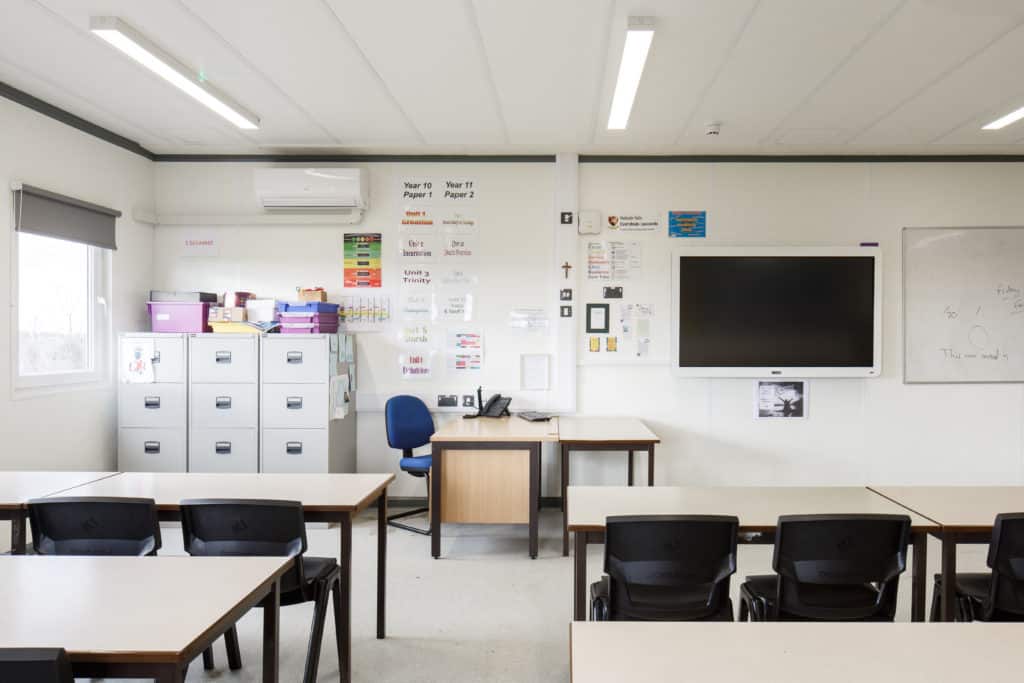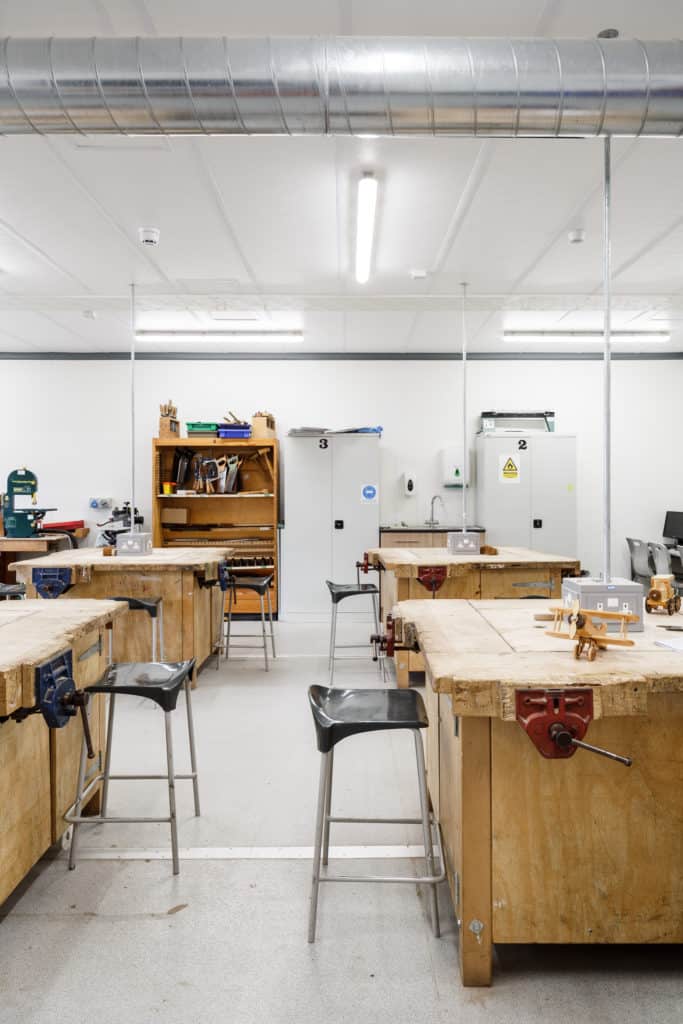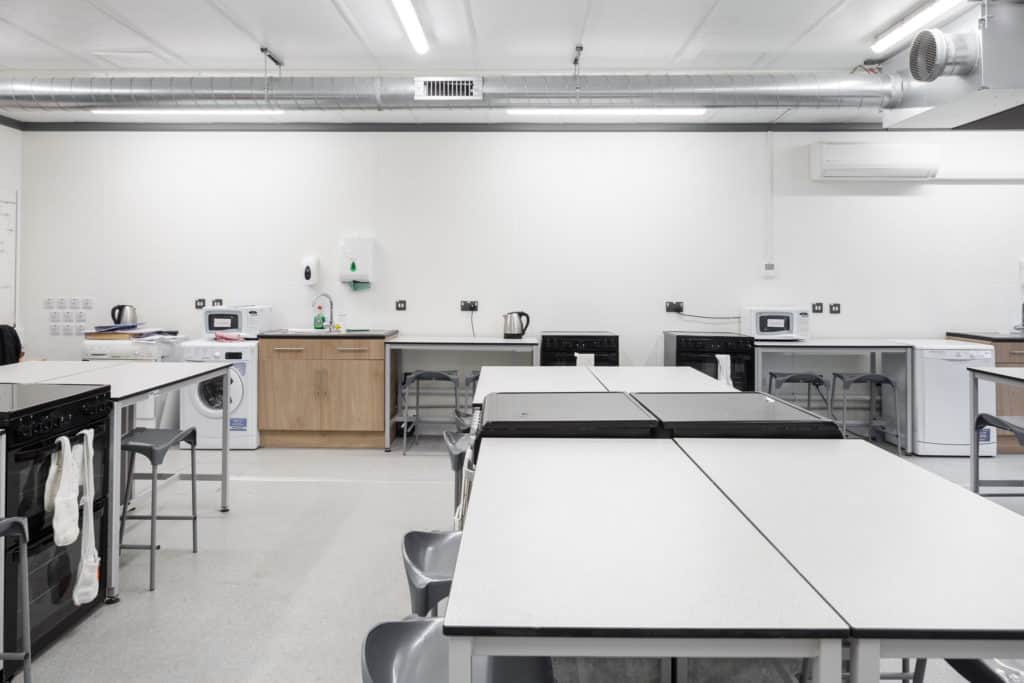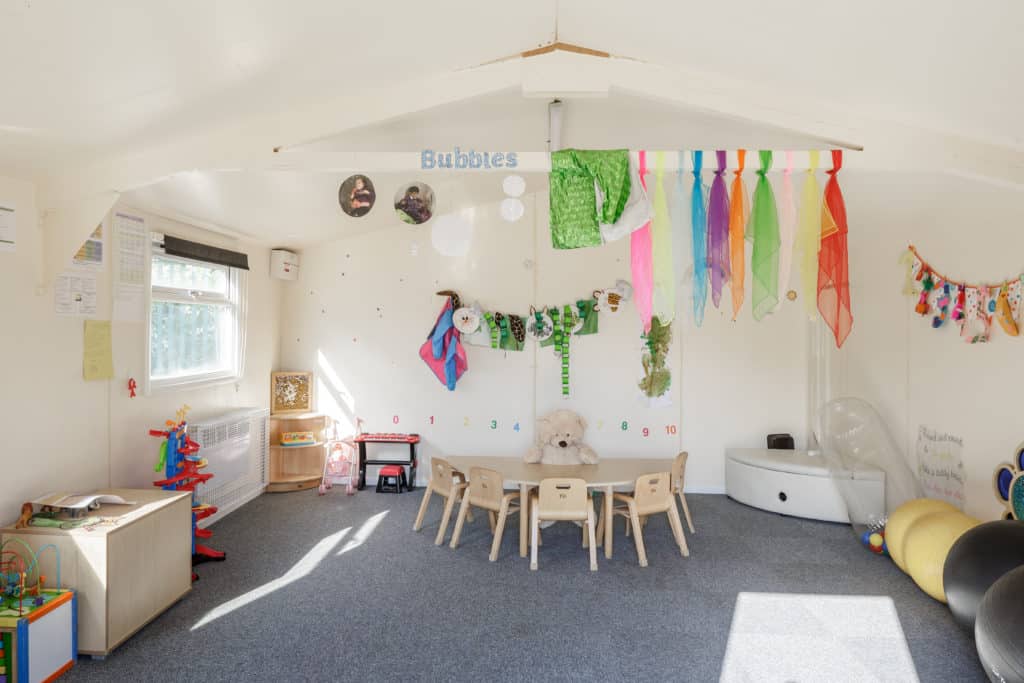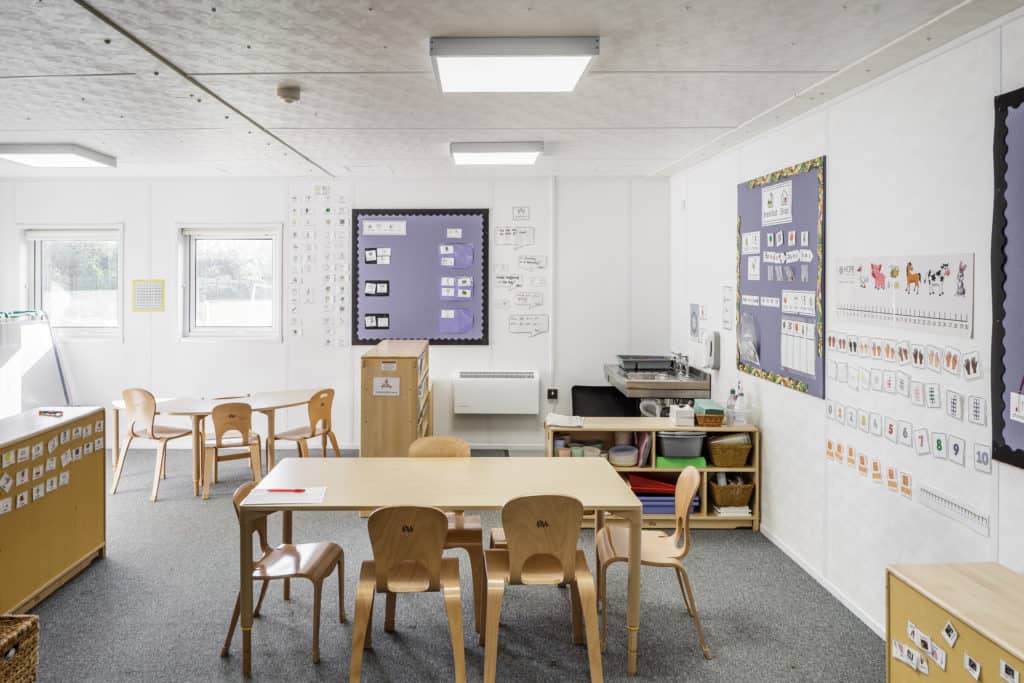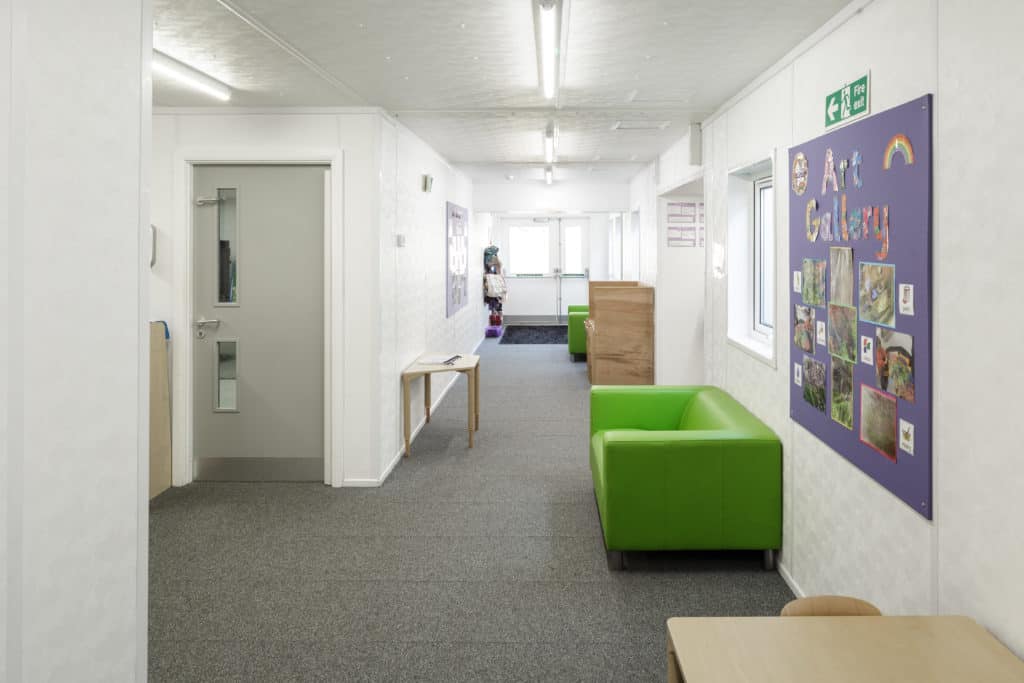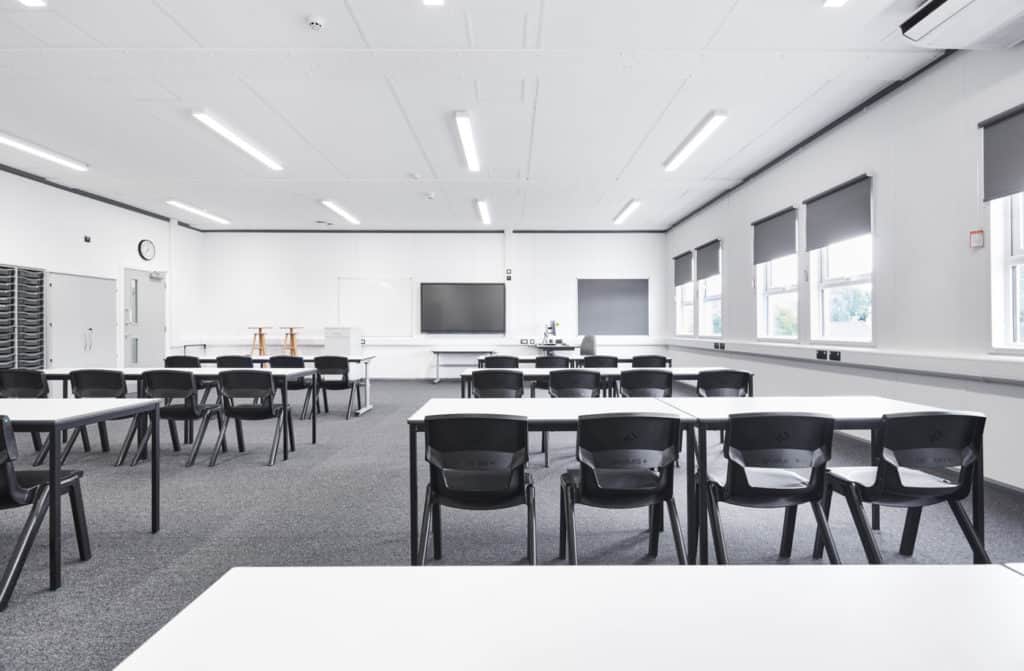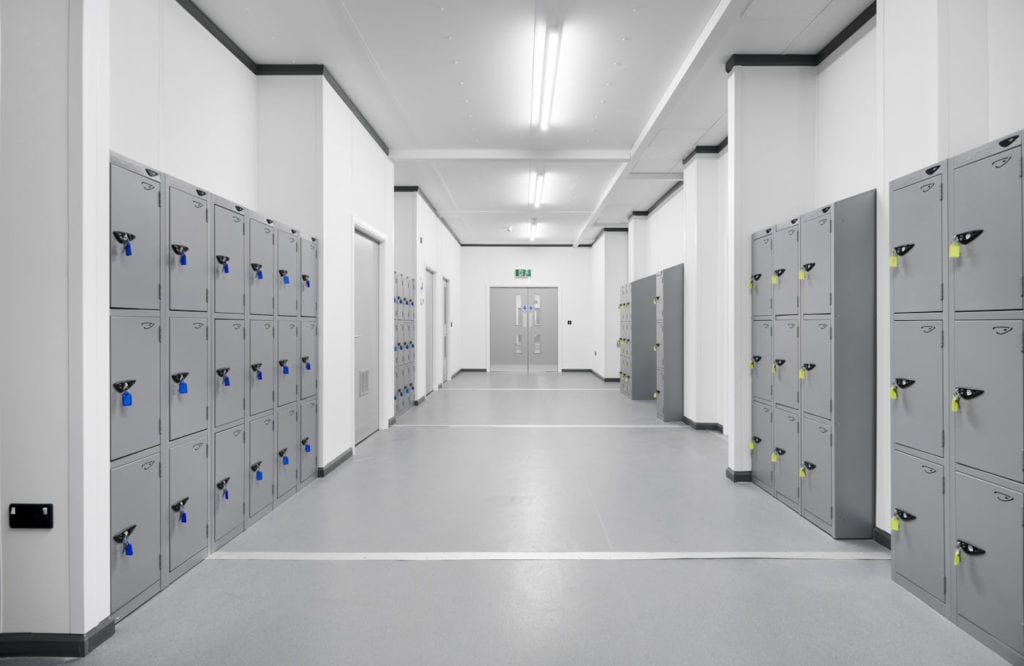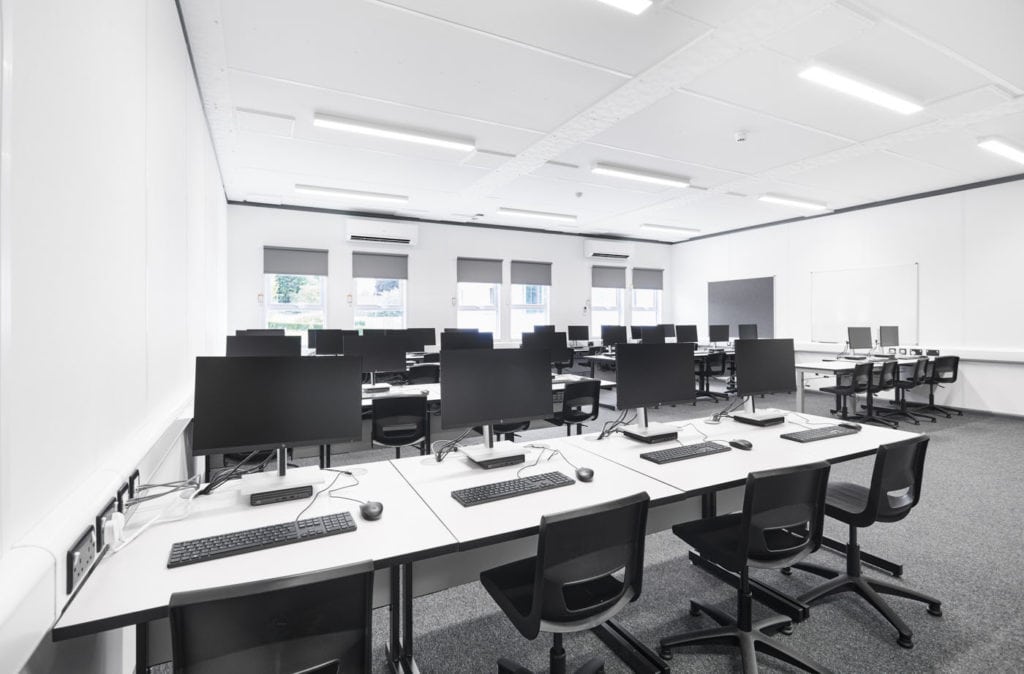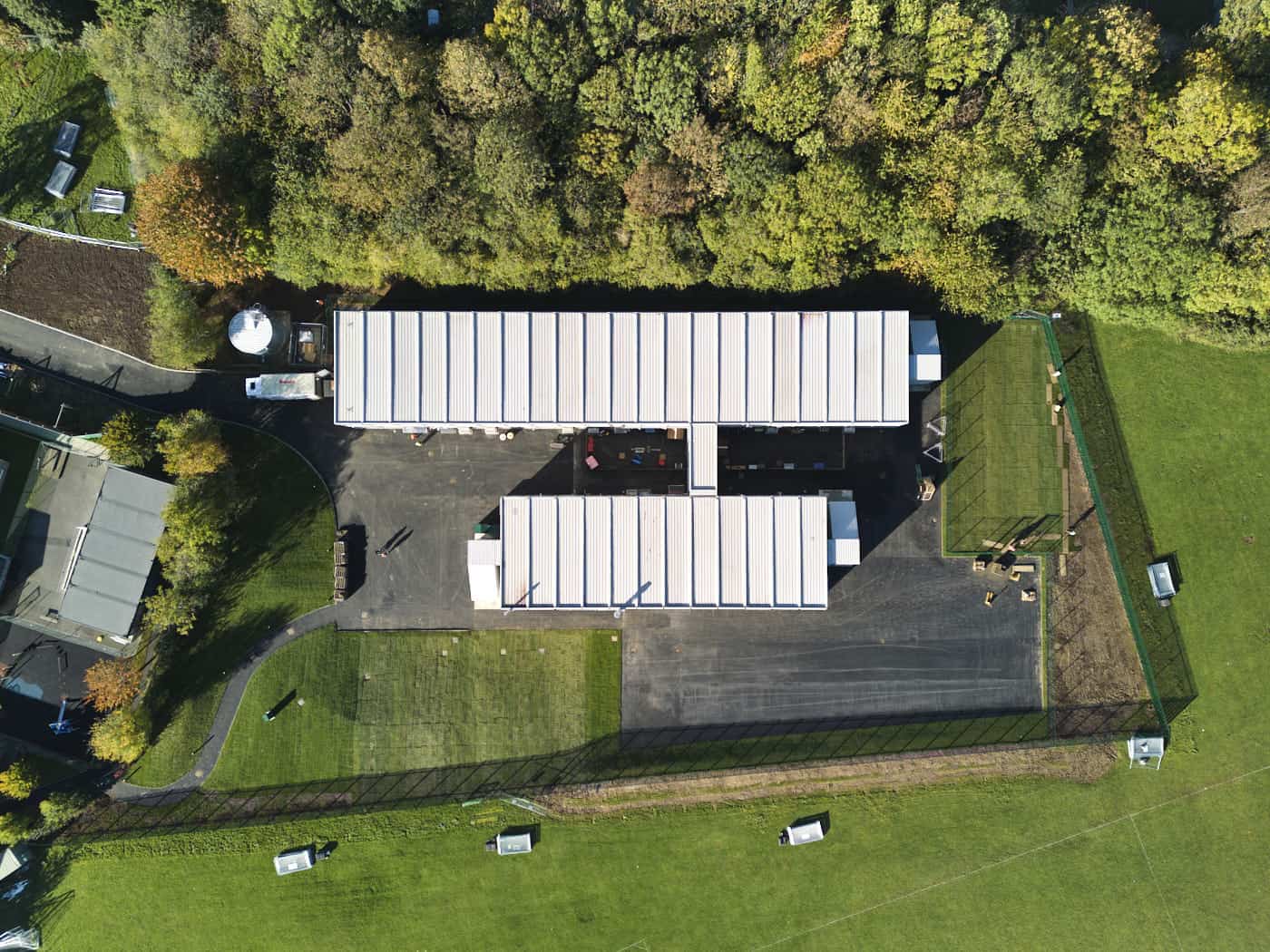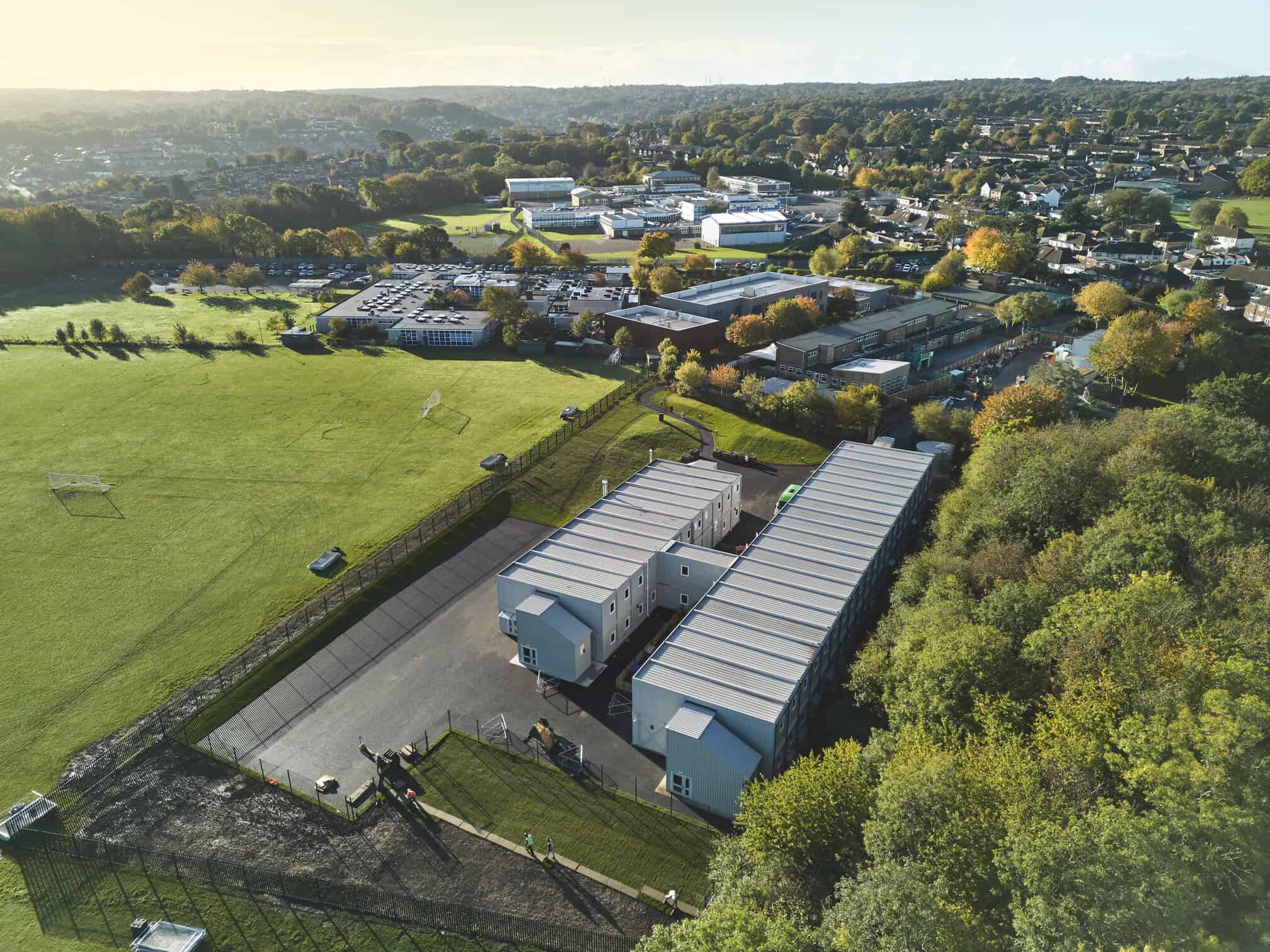School environments are important spaces that facilitate student learning and cater for many needs and experiences. The Government has launched a series of programmes and funds to ensure that UK pupils have access to quality learning environments, from the School Rebuilding Programme to the £1.8 billion Condition Improvement Fund.
Modular construction has a huge role to play in supporting these initiatives, providing high quality temporary classrooms that are beneficial to both pupils and the environment. But why should schools consider modular solutions when embarking on a plan of expansion or refurbishment?
Modular Classrooms, Minimal Fuss
When it comes to any building work, including temporary classrooms, schools might be wary of the mess and noise associated with construction. Chaotic, loud construction sites can disrupt pupil learning and reduce accessibility until the work is complete.
Modular construction comes into its own here – offering an alternative that will maintain normalcy for pupils as far as possible, whilst reducing some of the risks associated with a traditional construction site. As an offsite building solution, portable classrooms are created using precision manufacturing techniques that reduce the risk of human error and maintain high quality – with zero waste sent to landfill.
Constructed with lightweight steel frames, schools using modular classrooms additionally avoid the need for deep pile foundations This means that the onsite installation of the modules can occur in a matter of weeks – taking place outside of term time where possible to significantly reduce disruption to the school and its pupils.
Classrooms designed for enhanced learning
With high ceilings, spacious hallways and entrances, temporary modular classrooms offer flexibility whilst providing the same feeling as a permanent space. This flexibility allows for the creation of multi-functional spaces that can change with a school’s needs. Even after installation, modules can be reconfigured to adapt to new or enhanced requirements.
The modular classrooms themselves are open-plan, bright, and airy, with the option to create specialist zones or recreation areas, such as therapy rooms or rooftop terraces for pupils to enjoy during lunch breaks.
Temporary classrooms also take advantage of the latest technologies to create enhanced environments for pupil learning and energy efficiency, including the use of motion sensor LED lighting and air source heat pumps for efficient heating and cooling. Mechanical heat recovery ventilation can be integrated with the building management system, optimising the internal atmosphere for pupils and staff.
With Government research revealing over 1.5 million pupils in England have special educational needs (SEN), temporary spaces must create enhanced environments for every pupil to flourish. The flexibility of modular buildings means they can be easily adapted to the exact needs of the student body. For example, when it comes to helping pupils manage sensory overload, rooms can be created with black-out blinds and removable soft finishes to walls. Padded surfaces can also be included for movement therapy.
Acoustics are also important to consider, as too much noise could leave pupils feeling overstimulated, stressed or anxious. Modular construction involves materials such as fibreglass or stone wool insulation, which dampen external noise and allow pupils to focus on their learning.
Temporary with a twist
Once the school no longer needs the temporary classrooms, their modular nature means that they can be taken apart and repurposed. This means less disruption for the school, as the units are removed quickly and less waste for the planet as they are reconfigured and reused.
While temporary buildings might seem like a stop-gap option for some, the advances in modular construction mean that these units maintain excellence throughout their use. Whether they are required for a year or many decades, temporary modular structures provide bright, spacious and flexible environments for all pupils to learn and thrive.
For more information on our temporary classroom solutions, get in touch or call 0800 316 0888.


